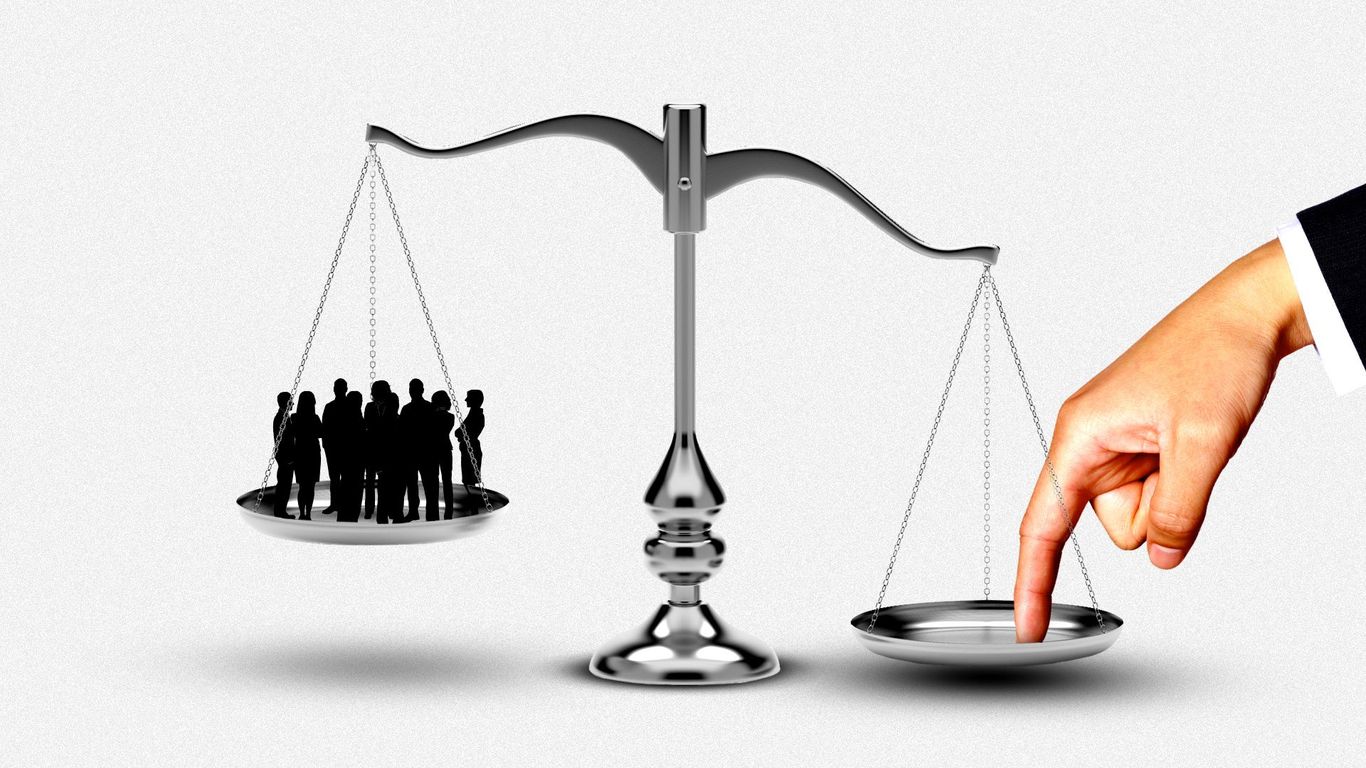History will probably remember the pandemic as the “first time since the beginning of records that inequality has increased in virtually every country in the world at the same time”. This is the verdict of Oxfam’s inequality report covering the year 2020 – a terrible year that has hit the poorest and hardest across the planet.
Why it matters: The world’s poorest were already in a race against time, facing an existential risk in the form of global climate change. The coronavirus pandemic could delay global poverty reduction by up to a decade, according to the World Bank.
- The virus exposed how work, health and education systems create additional disadvantages for low-income families and minorities, while allowing the wealthiest to recover quickly.
- Most of the nearly 300 economists worldwide surveyed by Oxfam said they expected the virus to exacerbate gender (56%), racial (66%), wealth (78%) and income (87%) inequalities in their countries .
By the numbers: The number of people living on less than $ 1.90 a day may have increased by more than 400 million last year. It is a larger number of people than the population of the United States.
- Over 3 billion people they did not have access to health care and three quarters of workers did not have access to sickness benefits. Meanwhile, the wealth of the top 1% continued to grow.
How it works: In the United States, 22,000 blacks and Latin Americans would still be alive today if their coronavirus mortality rates were the same as those for whites – the result of unequal access to health care, disproportionate rates of pre-existing diseases and other aggravating disadvantages in communities of color like Axios reported.
Yes but: While inequality inside countries worsened a lot in 2020, the world in general may have become less unequal. This is because the rich countries, in general, were more affected by the coronavirus than the poorest countries, which tend to have much younger populations.
What to watch: School closings have affected about 1.7 billion children worldwide. But children in rich countries were able to continue their education online and stayed out of school for much less time – about six weeks, on average, compared to four months for children in poorer countries. Millions of girls left school in 2020 and will never return.
The end result: As UN Secretary General Antonio Guterres said: “While we are all floating in the same sea, it is clear that some are on superyachts, while others are clinging to the drifting wreckage.”
